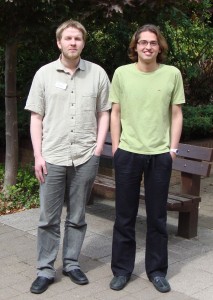PCCP themed issue: Organic electronics – new physical chemistry insight
Guest Editors: Prof. Wenping Hu (Institute of Chemistry, Chinese Academy of Sciences), Prof. Henning Sirringhaus (Cavendish Laboratory, Cambridge University) and Prof. Yutai Tao (Academia Sinica, Taiwan).
PCCP is delighted to announce the high-profile themed issue ‘Organic electronics – new physical chemistry insight’. It is our pleasure to invite you to submit to this themed issue.
The themed issue will be published in Physical Chemistry Chemical Physics (PCCP) in 2012 and will receive great exposure, and get significant promotion.
PCCP is a high-impact, community spanning, international journal publishing work of the highest quality in the broad fields of physical chemistry, chemical physics and biophysical chemistry.
Deadline for Submissions: 14th May, 2012
Organic electronics has attracted the world’s attention due to the great promise of organic electronic devices for practical applications, from organic light-emitting diodes to organic solar cells and field-effect transistors as well as other new relevant fields.
Key challenges in this field include the low mobility of organic semiconductors, low stability of organic devices, the role of interfaces and device physics etc. And a lack of understanding of the structure–property relationships of organic semiconductors still hampers their rational design.
This themed issue will highlight the tremendous progress that has been made in this field and will help foster new ideas for future advances in solving the physical chemistry challenges of organic electronics.
- Submissions should be high quality manuscripts of original, unpublished research
- Communications and full papers can be submitted for consideration, which will be subject to rigorous peer review
- Please indicate upon submission that your manuscript is intended for this themed issue
Further details about PCCP can be found at www.rsc.org/pccp.



















 We are pleased to welcome
We are pleased to welcome  We are delighted to announce that
We are delighted to announce that 